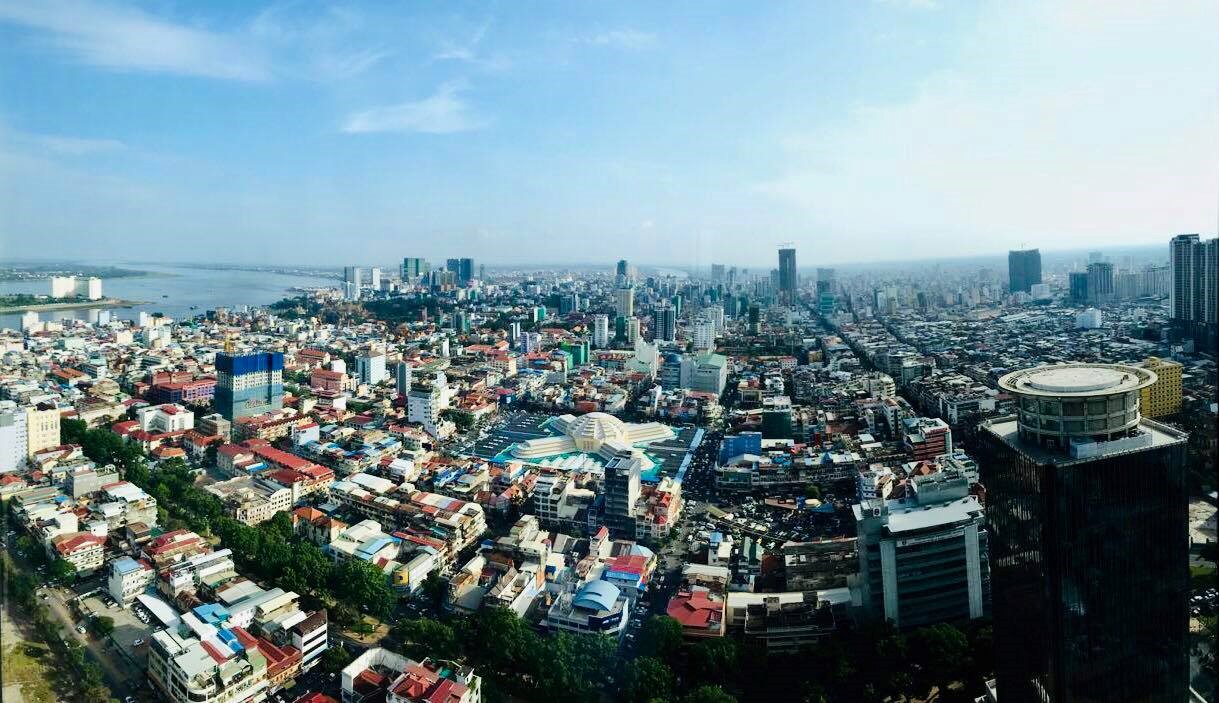English-Français
ជាតិ

×![]()
Letter to the Editor:
By Norak Sidh
By Norak Sidh
Lightning may not strike the same place twice, but the same cannot be said of lessons not learned. Given Cambodia’s turbulent past, her leaders and people need to listen closely to the echoes of history and avoid replaying the discordant notes of the past. And one key aspect of the country’s history is about managing transition. Transitions from one leader to another has often been tempestuous and even bloody. The political pendulum and external factors had often swung against the country’s aspiration for a sustainable development path.
The past two decades marks the longest period of stability since the independence from France. During this period, people have been better connected with bridges and roads and have more opportunities. The peace dividend has also provided Cambodia opportunities to build a substantial pool of capable people with passion for development both in public and private sector.
However, this stability will be tested by the natural law and the fundamental issues the country has been facing. On the one hand, the generational transition in key levels of leadership in the coming years is inevitable as mortality and aging are casting a shadow. On the other hand, the immense multifaceted development challenges are calling for the capability and legitimacy of the next generation of leadership. Indeed, much progress has been made so far; yet, much more remains to be achieved, especially in health, skills, and institutional capacity. The lingering voices of the left-behind, injustice, and frustration reflects what needs to be fixed. Leaders should embrace these voices to move our societies forward and together. If not managed well, the Cambodian societies could collide with loud noise.
Against this background, how can Cambodia maintain stability while manage her optimism and the transition? Cross-country development experience suggests that Cambodia needs to further build a set of building blocks to entrench stability and smooth the coming transition. These blocks include (i) a stable political environment, (ii) macroeconomic stability (iii) institutional capacity, (iv) Human capital (skills and healthcare), (v) private sector development, (vi) good judicial system, (vii) smart diplomacy, and (viii) more equality of income and opportunities. Among these factors, building a stable political environment is perhaps the most basic requirement in the current context.
A stable political environment requires a nonviolent political culture that facilitate more mutual respect, mutual understanding, and if possible, consensus building. Politics in Cambodia should tolerate more opposing views and improve the way we speak to each other and the way we disagree. It is clear that the political polarization we have been facing over the past decade have largely driven by contempt. Moving forward, given demographic and aspiration trend, Cambodia needs a good quality of the next generation politics that hinges on not only listening the opposing view but also the way we talk to each other.
The economic development over the past decades should give us optimism to achieve more while the aspiring new generation should be a driving force for the next phase of stability and growth. Such optimism should inspire us to look for ways and people who make progress in addressing the challenges, and to help them spread that progress more widely. For instance, if we are saddened by the number of children dying or dropping out of school, we need to ask: Who or which institution is good at saving children, and how can we help them to achieve more? This optimism needs to be further fueled by our efforts, social activism, and open mindset.
Optimism, however, does not mean we ignore tragedy, injustice, and inequality we have faced so far. Our optimism should not be misplaced and should not downplay the key challenges that remain to be addressed. Inequality, corruption, and constrained public services, for instance, could adversely lead to a strong sentiment of injustice, political polarization and even upheavals in the worst case. In many countries, it is difficult to maintain political stability when an excessive inequality of income, wealth, and opportunities exists. In Cambodia, far more needs to be also done to strengthen her institutions in health delivery and meritocracy—where hard works and achievement, rather than bloodlines, are properly rewarded.
Meanwhile, managing the coming transition will involve enormous challenges—not least of which is resolving the problems of the past. The optimism and structural issues are calling for capable teams. To gain legitimacy of leadership and power, the next generation need to address critical issues, rather than touching on superficial activities. Key issues such as healthcare, skills, food safety and traffic jams have direct link with people’s aspiration for better life. In this regard, the challenges the country face should serve as an opportunity for the younger generation to prove their capacity, legitimacy, and readiness for leaderships. They need a combination of better politics and better teams that combines political capital and technical capacity.
The time is also ripe for senior generations to let the young address real key challenges and debate more with open mindset among people from all parts of societies. This will allow the younger mind to test their ideas and leadership, which help them define and improve themselves, and differentiating self-confidence and optimism from arrogance. This is a key part of institutions we need to build as soon as we can. If loyalty is a ticket to the leadership transition, there must be more loyal, energetic, and capable younger generation of ministers and provincial governors. At the same time, for an effective and sustainable nation building, at least a capable opposition is needed to help check and balance as well as inform people about their choice and rights.
The journey ahead remains long and difficult. As the wind of transition is blowing, we must steer the country towards our goals and vision rather than let her drift. We all have a role to play and must not await others to make things better for us. More efforts are needed to build cooperation and trust, help each other, and minimize extremism. Taking advantages of the growth momentum and a more informed aspiration of Cambodians, current and future leaders can be united behind a common vision and national interests above political parties. That common zone would allow for the sustained implementation of urgent and tough reforms. Only through common national interest and reforms can we ensure that Cambodia move towards a better economic and political existence and does not slip back into dangerous conflict trap.
Tag:
Letters to the Editor
© រក្សាសិទ្ធិដោយ thmeythmey.com






















